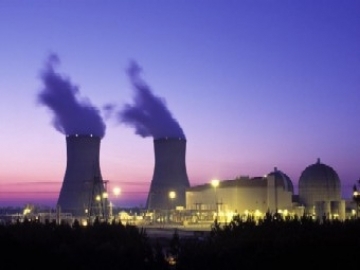 The same Energy Policy Act of 2005 that
subsidized dirty oil and fracked methane including LNG exports
also funded
that oxymoron “clean” coal such as Southern Company’s Plant Ratcliffe
in Mississippi,
ethanol production lining the pockets of Monsanto, and
the $8.3 billion loan guarantee
to Georgia Power for the new nukes at Plant Vogtle.
The same Energy Policy Act of 2005 that
subsidized dirty oil and fracked methane including LNG exports
also funded
that oxymoron “clean” coal such as Southern Company’s Plant Ratcliffe
in Mississippi,
ethanol production lining the pockets of Monsanto, and
the $8.3 billion loan guarantee
to Georgia Power for the new nukes at Plant Vogtle.
 2005 was a very long time ago in solar PV years:
prices are halved, and installed solar power production is up more
than ten times and growing exponentially like compound interest.
We need to stop throwing money at dirty, water-sucking,
centralized baseload 20th century non-solutions and get on with
clean 21st century distributed solar and wind power
for jobs, for energy independence, and for clean air and water,
not to mention less climate change.
2005 was a very long time ago in solar PV years:
prices are halved, and installed solar power production is up more
than ten times and growing exponentially like compound interest.
We need to stop throwing money at dirty, water-sucking,
centralized baseload 20th century non-solutions and get on with
clean 21st century distributed solar and wind power
for jobs, for energy independence, and for clean air and water,
not to mention less climate change.
-jsq










